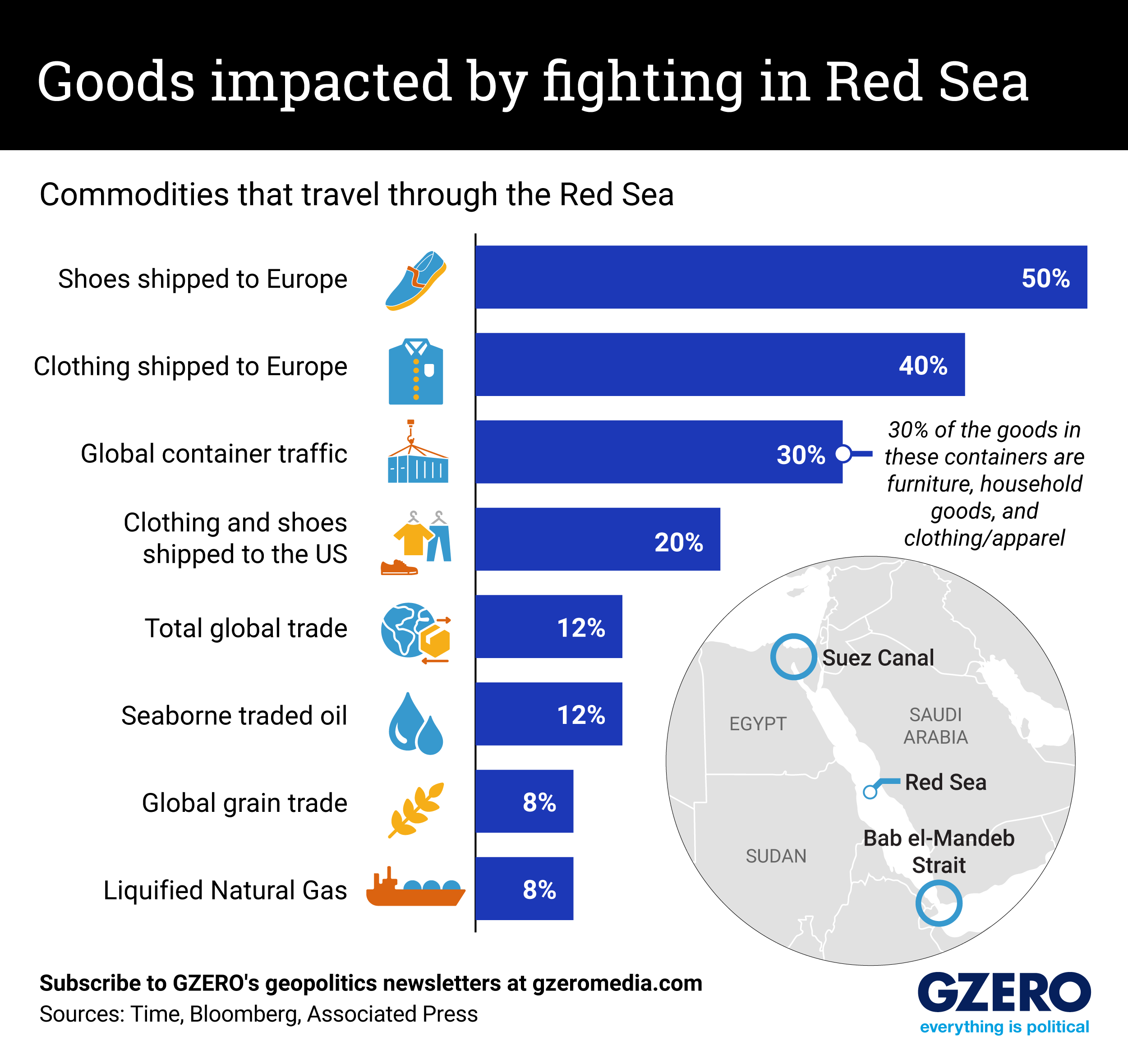February 07, 2024
Attacks on commercial shipping by the Iran-backed Houthi rebels in the Red Sea have thrown yet another wrench into global trade, which has already struggled in recent years due to the COVID-19 pandemic and the war in Ukraine.
The Red Sea is one of the busiest shipping lanes in the world, accounting for 30% of global container traffic. Due to the recent chaos, over a dozen shipping companies have rerouted their vessels around the tip of Africa – driving up costs and delays. This could also mean rising consumer prices at a time when inflation is already painfully high.
The US and its allies have made efforts to thwart Houthi attacks on shipping, but the Yemen-based militants have remained defiant. As recently as Tuesday, the Houthis fired multiple missiles at two ships in the Red Sea.
These are the commodities impacted by unrest in the Red Sea region.
More For You
Bad Bunny during the Super Bowl LX halftime show press conference at Moscone Center.
Kirby Lee-Imagn Images
100 million: The number of people expected to watch the Super Bowl halftime performance with Bad Bunny, the Puerto Rican superstar and newly minted Album of the Year winner at the Grammys.
Most Popular
Think you know what's going on around the world? Here's your chance to prove it.
- YouTube
An imminent US airstrike on iran is not only possible, it's probable.
Americans are moving less — and renting more. Cooling migration and rising vacancy rates, especially across the Sunbelt, have flattened rent growth and given renters new leverage. For many lower-income households, that relief is beginning to show up in discretionary spending. Explore what's changing in US housing by subscribing to Bank of America Institute.
© 2025 GZERO Media. All Rights Reserved | A Eurasia Group media company.
